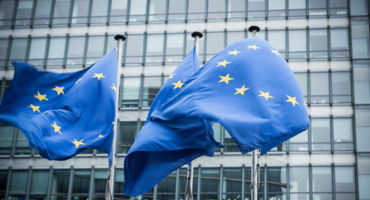This material and its contents may not be reproduced or distributed, in whole or in part, without the express written consent of Wellington Management. This document is intended for marketing purposes only. It is not an offer to anyone, or a solicitation by anyone, to subscribe for units or shares of any Wellington Management Fund (“Fund”). Nothing in this document should be interpreted as advice, nor is it a recommendation to buy or sell securities. Investment in the Fund may not be suitable for all investors. Any views expressed in this document are those of the author at the time of writing and are subject to change without notice. Fund shares/ units are made available only in jurisdictions where such offer or solicitation is lawful. he Fund only accepts professional clients or investment through financial intermediaries. Please refer to the Fund offering documents for further risk factors, pre-investment disclosures, the latest annual report (and semi-annual report), and for UCITS Funds, the latest Key Investor Information Document (KIID) before investing. For each country where UCITS Funds are registered for sale, the prospectus and summary of investor rights in English, and the KIID in English and an official language, are available at www.wellington.com/KIIDs.
For share/unit classes registered in Switzerland, Fund offering documents in English, French, Swiss French can be obtained from the local Representative and Paying Agent — BNP Paribas Securities Services, Selnaustrasse 16, 8002 Zurich, Switzerland. Wellington Management Funds (Luxembourg) and Wellington Management Funds (Luxembourg) III SICAV are authorised and regulated by the Commission de Surveillance du Secteur Financier and Wellington Management Funds (Ireland) plc is authorized and regulated by the Central Bank of Ireland. The Fund may decide to terminate marketing arrangements for shares/units in an EU Member State by giving 30 working days’ notice.
In the UK, issued Wellington Management International Limited (WMIL), a firm authorised and regulated by the Financial Conduct Authority (Reference number: 208573). In Europe (ex. UK and Switzerland), issued by Wellington Management Europe GmbH which is authorised and regulated by the German Federal Financial Supervisory Authority (BaFin). Shares of the Fund may not be distributed or marketed in any way to German retail or semi-professional investors if the Fund is not admitted for distribution to these investor categories by BaFin.
©2022 Wellington Management. All rights reserved. As of 30 September 2022. WELLINGTON MANAGEMENT FUNDS ® is a registered service mark of Wellington Group Holdings LLP










